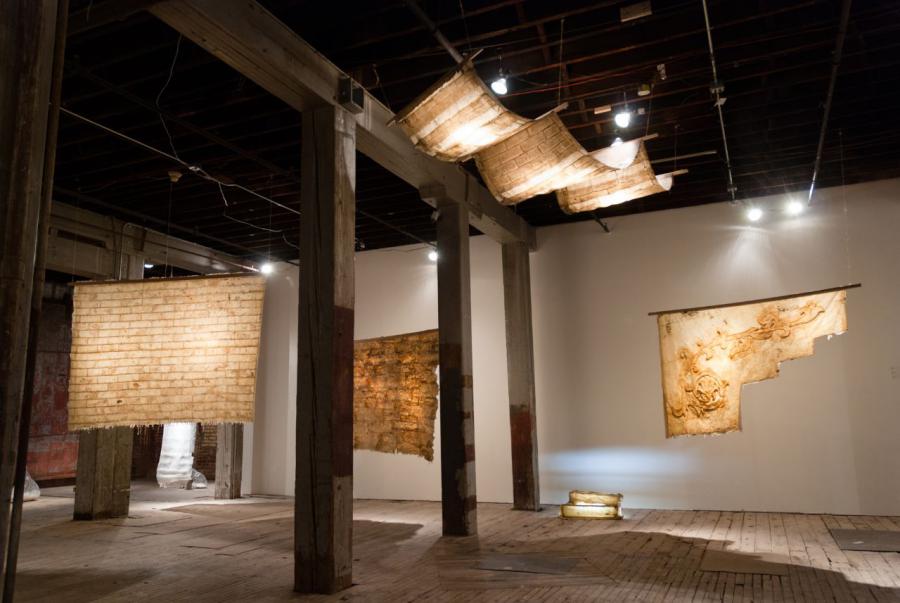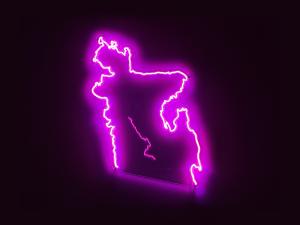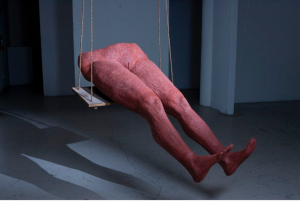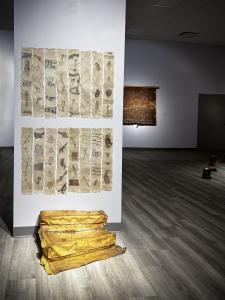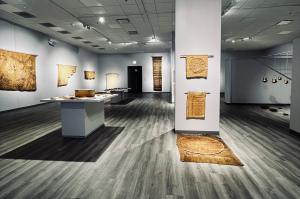
Exhibit Complicates History on the 51st Anniversary of the Bangladesh Liberation War
The Partition Anti-Memorial Project Raises Consciousness about Rape as a Weapon in Bangladesh Liberation War
CHICAGO, IL, UNITED STATES, January 25, 2023 /EINPresswire.com/ -- The world recently celebrated the 51st Anniversary of the end of the 1971 Bangladesh Liberation War, which started on March 25th in Dhaka with Operation Search Light, and finally ended on December 16, 1971. In this brutal war, now widely recognized as genocide, over 3 million people were killed, and 20 million were displaced internally and as refugees. The Pakistani Army surrendered on December 16th, 1971, and this day is officially celebrated as Victory Day or Bijoy Dibas, in Bangladesh.
Socio-political artist and curator Pritika Chowdhry founded the Partition Anti-Memorial Project in 2007 and is joining the festivities of Victory Day with two thought-provoking exhibitions that are counter-monuments to this geopolitical event.
Pritika’s ongoing exhibition "Ebb/Flow" at Weisman Art Museum comprises multimedia installations that deepen access to and interrogate sites of historical and cultural upheaval.
Her recent exhibition “Unbearable Memories, Unspeakable Histories” exhibited at the South Asia Institute in Chicago alludes to the painful and silenced narratives that have been left out from mainstream discourses of the Partition. It displayed some of her prominent works from the Partition Anti-Memorial Project.
The Partition Anti-Memorial Project aims to raise consciousness about the systematic rape of over 200,000 to 400,000 Bangladeshi women during the Bangladesh Liberation War. Rape was extensively used as a weapon of war in this genocide to wound and humiliate the people of Bangladesh.
Chowdhry says, "the use of rape as a weapon of war in 1971 is a complicated issue," and that "the widespread use of rape against women is the counter-memory of the Bangladesh Liberation War." While wartime rape in 1971 has been kept in the public memory, it has been done by using the trope of the "Birangona". This framing is problematic because it erases the lived experience of the women themselves.
The women victims of wartime rape in Bangladesh are referred as "Birangonas," or brave women. However, state actors use this term as propaganda to create a narrative of victim nationalism that leaves the actual "Birangonas" in an impossible situation of national eulogization but ostracization in their villages and families.
"When a memory is unbearable, how do you memorialize it?" asks Chowdhry. Chowdhry did an artist residency in Dhaka at the Britto Arts Trust in 2013 and did research on three national monuments in Dhaka - the Martyred Intellectuals Memorial, the Liberation War Museum, and the Jalladkhana Killing Fields Museum.
"The Birangona" and her trauma was absent from these national monuments," says Chowdhry. "Traditional monuments and memorials seem inadequate to memorialize such an inexpressible issue. I felt that what is needed is an anti-memorial that will help people understand the trauma of the "birangona" in a deep way," Chowdhry continued.
In these anti-memorials, Chowdhry also draws parallels with the use of rape as a weapon of war in the 1947 Partition of India, by examining monuments in Pakistan and India. Her anti-memorials also expose the ongoing use of rape as a weapon in ethnic conflicts and communal riots in the South Asian sub-continent.
Chowdhry is a counter-memory expert and an anti-memorial specialist. In the Partition Anti-Memorial Project, her anti-memorials are quietly provocative, temporary, and incorporate visceral materials and soundscapes. Chowdhry emphasizes that her goal is not necessarily to "speak for the women" or "give a voice to the voiceless" because that would be another kind of silencing for the women. Her experiential art installations invite viewers to be in the space, in the act of bearing witness, holding space, mourning, remembrance, and repair.
The anti-memorials are thought-provoking art installations that flip the idea of traditional monuments and memorials on its head. Chowdhry says, "it is important not to forget such atrocities because if we forget, we are bound to create conditions that will enable history to repeat itself."
ABOUT THE PARTITION ANTI-MEMORIAL PROJECT
The Partition Anti-Memorial Project comprises ten anti-memorials that examine various aspects of the Partition of India in 1947, and the Bangladesh Liberation War in 1971, and the ongoing communal riots and ethnic conflicts in the South Asian sub-continent. In addition, it also examines partitions of other countries and raises awareness about rape as a weapon of war in partitions and civil and military wars.
Founded in 2007 by socio-political activist artist, Pritika Chowdhry has an MFA in Studio Art and an MA in Visual Culture and Gender Studies from the University of Wisconsin, Madison. She has exhibited her artworks internationally and in public and private collections and is a Senior Curator at the South Asia Institute of Chicago and a Board Member of the Woman Made Gallery in Chicago.
For more information, visit the Partition Anti-Memorial Project at https://www.pritikachowdhry.com/partition-india-art
Pritika Chowdhry
Counter-Memory Project
+1 (312) 945-8466
news@pritikachowdhry.com
Visit us on social media:
Facebook
Twitter
Instagram
YouTube
Partition Art | BROKEN COLUMN - Dhaka edition
Distribution channels: Agriculture, Farming & Forestry Industry, Beauty & Hair Care, Conferences & Trade Fairs, Culture, Society & Lifestyle, Education, Emergency Services, Energy Industry, Environment, Gifts, Games & Hobbies, Human Rights ...
Legal Disclaimer:
EIN Presswire provides this news content "as is" without warranty of any kind. We do not accept any responsibility or liability for the accuracy, content, images, videos, licenses, completeness, legality, or reliability of the information contained in this article. If you have any complaints or copyright issues related to this article, kindly contact the author above.
Submit your press release
